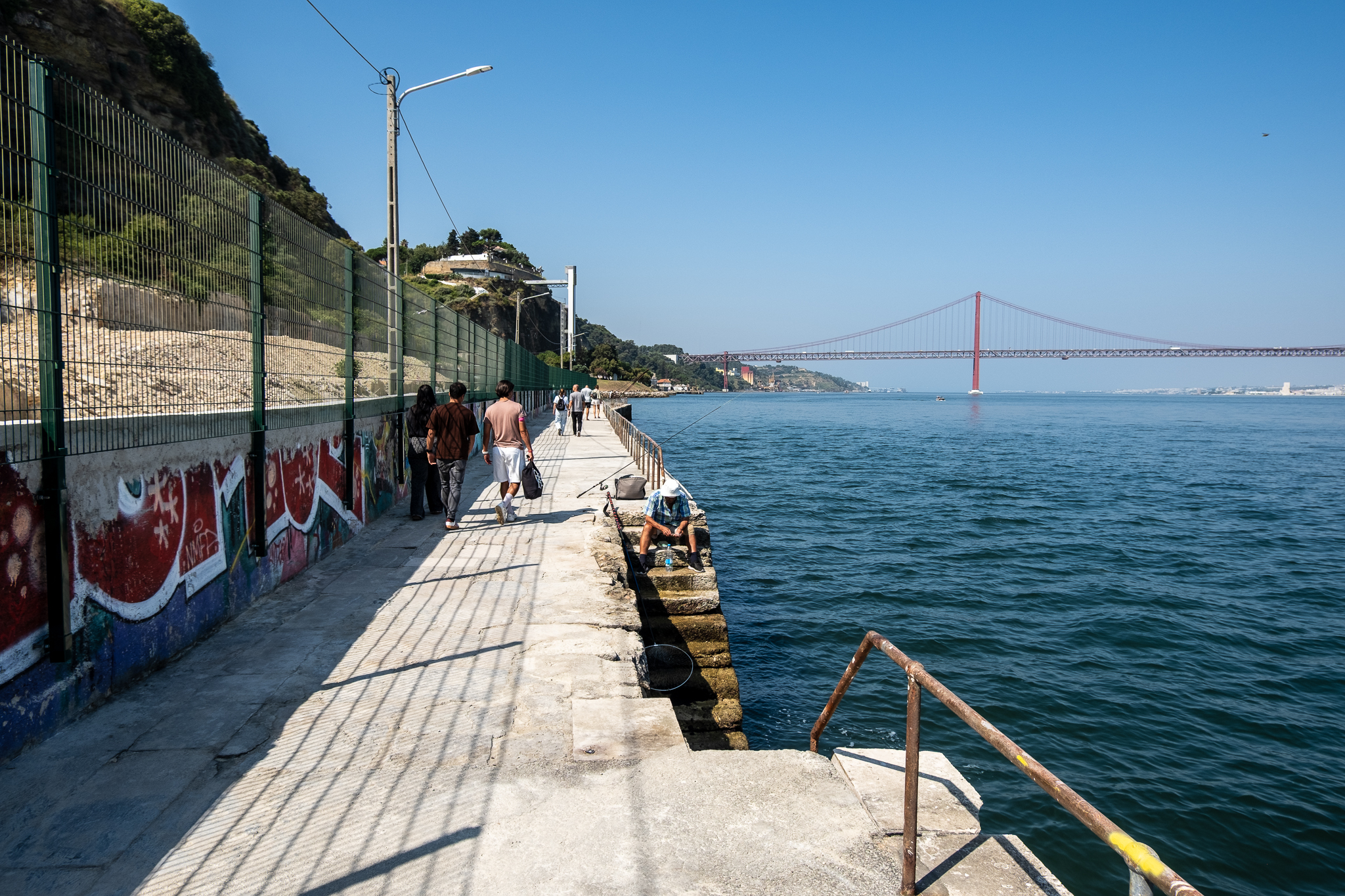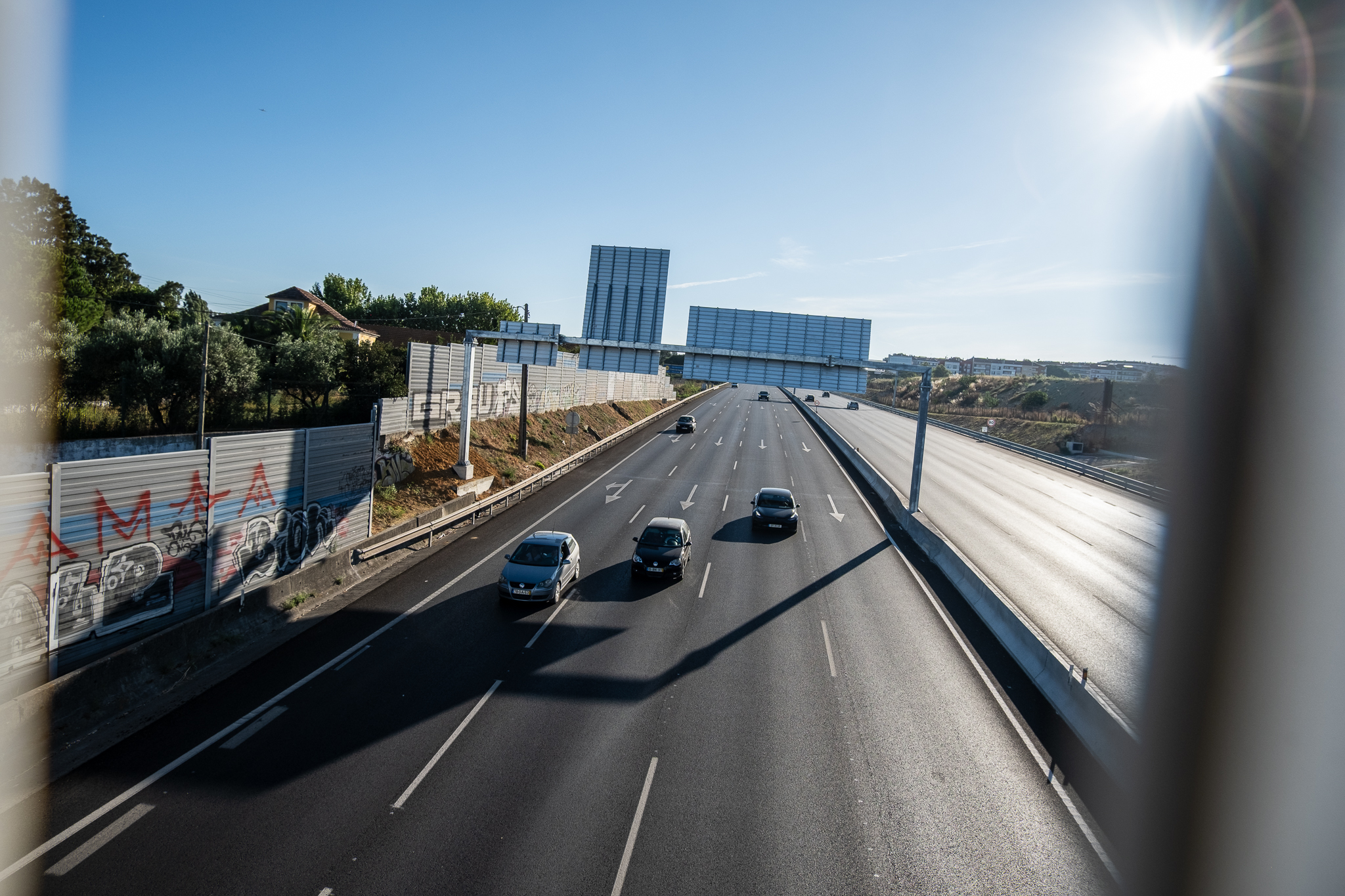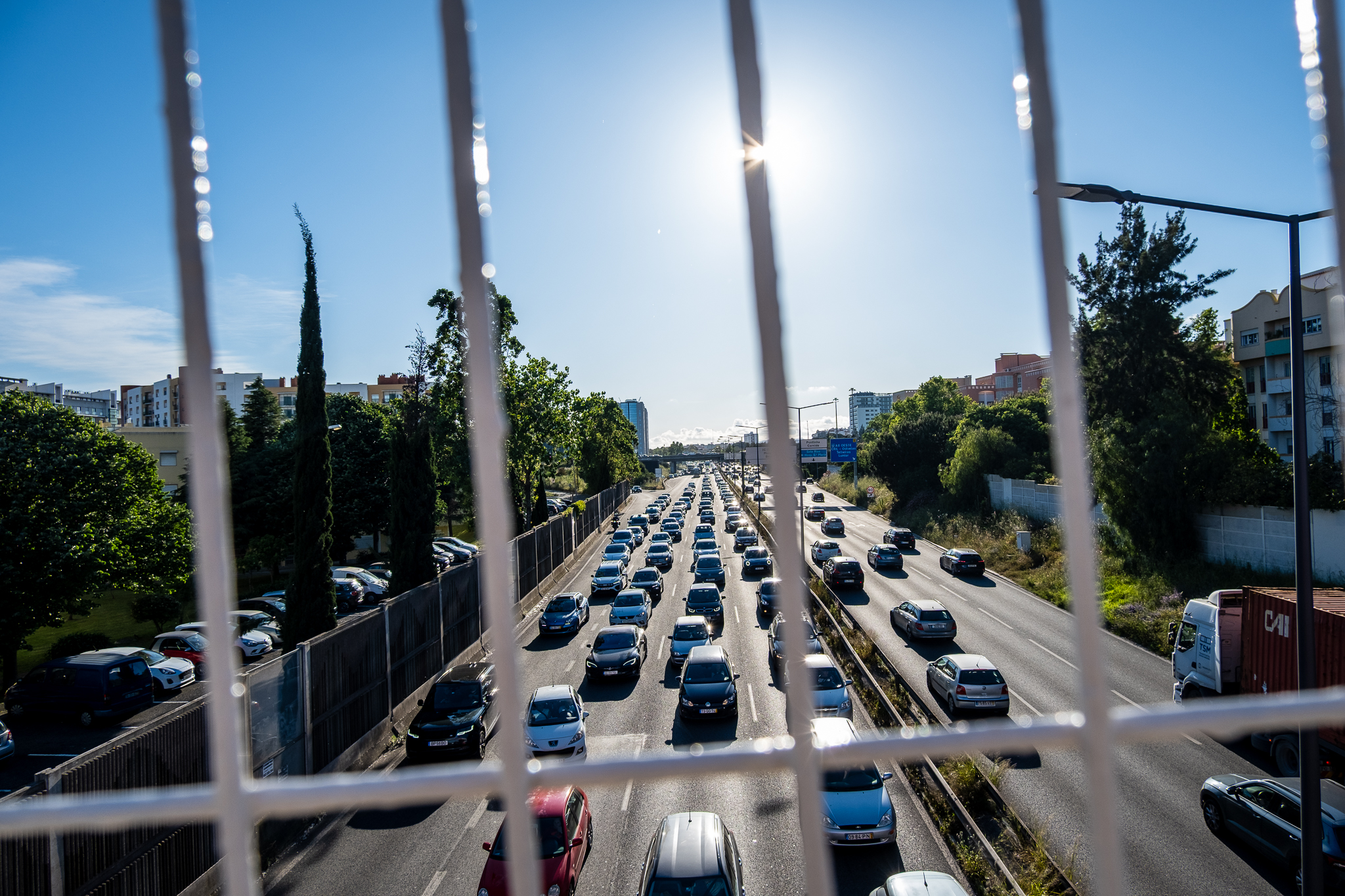TTSL (Transtejo Soflusa) bought 10 electric boats, but nine of them had no batteries, and wanted to buy them separately, with a contract amendment and a direct award. The Court of Auditors said no, and the TTSL board eventually resigned. The future of river transport in AML was plunged into uncertainty. We clarify...

Last week was a gray week between the two banks of the Tagus River. TTSL (Transtejo Soflusa), which provides river public transportation in the Lisbon metropolitan area, wanted to make a direct adjustment amounting to 15.51 million euros to purchase batteries for nine of the 10 electric boats it had previously bought to renew its fleet. But the Court of Auditors did not give the green light, alleging that the direct award would be illegal and harmful to the public interest.
The judges stated that buying boats without batteries is like "buy an automobile without an engine, a motorcycle without wheels, or a bicycle without pedals"They don't understand why TTSL didn't decide to include the batteries in the ship order, even if, due to financial constraints, it had to buy fewer ships.
With the Court of Auditors' denial, TTSL is left with nine boats that have been ordered but without assured supplies. The case shook the media and marked conversations in recent days; the words of the judges were harsh and the board of directors of TTSL, which resigned in the meantime, also did not spare itself in the answers. But do we understand everything about this story? Maybe not, so let's get down to details.
The new boats
With an aging fleet and several stranded shipsTTSL has started to work on a project to renew and reinforce its fleet. In 2019, it was decided to buy 10 electric boats, after the government authorized the company under its tutelage to spend a maximum of 57 million euros; with this amount, it could buy a maximum of 10 ships, and could decide to buy fewer as long as it did not spend more than the 57 million.

This fleet modernization process was started mainly for the river connections between the capital and Montijo, Seixal and Cacilhas, managed by Transtejo, one of TTSL's branches. And it was, basically, segmented into three parts: on the one hand, the purchase of boats itself; on the other hand, the acquisition of the batteries for these boats and, on the other hand, the installation of the charging stations on the river docks.
| Object | Procedure | State | Dates |
|---|---|---|---|
| 10 electric ships | Call for tenders | Completed. Won the Spanish shipyard Astilleros Gondán, which is designing and building the boats in light of TTSL's needs. | 1st ship already delivered (with battery); three more would be delivered later this 2023, four were scheduled for 2024 and two in 2025. |
| Batteries | Direct adjustment to Astilleros Gondán | Rejected by the Court of Auditors. TTSL will probably have to launch a public tender. | Dependent on the appointment of a new board of directors and the Government. |
| Charging stations | Call for tenders | Completed. The consortium CME/Seth won. Stations are planned in the river terminals of Seixal, Cais do Sodré, Montijo, and Cacilhas. | Seixal Terminal would be the first to receive the posts. These structures are expected to come into operation during the second half of the year. |
Chronology
- after a public tender, the purchase of the ships was awarded, in January 2021, to the Asturian shipyard Astilleros Góndan by 52.4 million euros. Are 10 ships for the connections of Cacilhas, Montijo, and Seixal, and of these 10 boats, only one was purchased with a battery. Initially, the new boats were expected to arrive between 2022 and 2024, but the schedule slipped. The first ship - the one with the battery - is already at TTSL's shipyard in Cacilhas to begin the process of testing and training the crew; the remaining ones should arrive by 2025: three by the end of 2023, four in 2024 and the last two in 2025. The new electric 100% fleet has been specifically designed for TTSL's operating needs, and should improve the travel experience for passengers - by offering journeys free of noise, vibrations and odors - and, on TTSL's side, should enable gains in energy efficiency and reductions in maintenance costs;
- in turn, the contract for the construction and supply of charging stations for the new fleet was awarded in September 2022, for the approximate value of 14.4 million eurosto the consortium CME - Construction and Electromechanical Maintenance/Seth - Society of Contractors and Hydraulic Works. The charging stations will be located at the river terminals of Seixal, Cais do Sodré, Montijo and Cacilhas. An average of six minutes of charging and an autonomy of more than 1 hour and 20 minutes is expected, and these infrastructures will be ready by the end of this year;
- Regarding batteries, TTSL would be planning, in 2019, to lease them through the model of leasingThis is a more advantageous way to go than buying batteries - not least because batteries have a short lifespan. At the same time, the company would not have the funds to make the purchase of the batteries along with the 10 ships. However, the economic context has changed, the price of batteries has risen and the leasing would have become less advantageous, with TTSL eventually proposing to the Court of Auditors to amend the contract with Astilleros Góndan to add the missing nine batteries. To do so, it would have to make a direct adjustment of €15.51 million. However, the Court decided to block this option, leaving the purchase of batteries in an uncertain future. We will explore this issue further below.
As mentioned, the ships that Astilleros Gondán is manufacturing for TTSL (and which will be delivered in stages) come as a result of a design and build tender: that is, the ships have been developed specifically for TTSL and are being built according to a set of guidelines that TTSL has made, under the so-called Specification. But, In this process, Astilleros Gondán is not alone: it has contracted another company, ABB, to make the electrical solution compatible with Corvus Energy's batteries (which would be the same brand that the second-ranked Estaleiros Navais de Peniche would have chosen if their bid had won the public tender).
| Competitor | Electrical Solution Provider | Battery Brand | Overall Price | Price per battery |
|---|---|---|---|---|
| Astilleros Gondán | ABB (responsible for the electrical solution and equipment supply) | Corvus Dolphin Power | 52.44 million euros | 1.60 million/battery |
| Peniche Shipyard | Danfoss Editron (responsible for the propulsion control system; no supplier for an integrated solution) | Corvus Dolphin Power | 56.89 million euros | (does not mention the value of the battery in isolation) |
| Majestic | Electric system by Majestic; Eaton (battery management system); Vulkan (electric motors) | Toshiba | 56.75 million euros | 3.27 million/battery |
As the first ship of the new fleet arrived in Lisbon, the polemic erupted in the capital precisely about this business trio.
The batteries
When in 2019 TTSL launched the tender for the vessels, it included only one battery. In other words, of the 10, only one vessel was ordered with the consumable to allow TTSL to immediately conduct the first trials on the Tagus and, most importantly, to train the crews before the arrival of the remaining vessels. Only, not having taken care of the battery order at the time, the carrier was now in a bind.
A summary
- initially, when preparing the tender for the purchase of the vessels, TTSL decided to make the purchase of the batteries autonomous, claiming that they did not keep up with the lifetime of the vessels (they lasted 7-9 years). The first option considered was to lease the batteries rather than buy them, he explained to the judges. Leasing would be the "best financial option" to date, "as the annuality costs for renting the batteries for the first 7 years would be between a minimum of 800,000 euros and a maximum of 1.2 million euros"which gave a "annual cost of renting less than 9 million euros". At the time, the acquisition cost would be "over 10 million euros"TTSL explained to the Court of Auditors;
- However, the lease option was discarded due to the changing market and the rising cost of electronic components at the time of the Covid-19 pandemic, as the company justified in a press conference to journalists; and in early 2020, TTSL began looking at the purchase option. "If this option had occurred before the launch for the procurement of the ships, it would necessarily have led to the inclusion of the entire procurement of the battery packs in the same tender", he assured in response to the Court of Auditors. The company TTSL said that, at the time of the conclusion of the contract for the purchase of the ships, it would not have the money to buy all nine batteries and, through the operational program of European funds POSEUR, could not co-finance this purchase;
- in 2022, TTSL has issued two direct invitations to Corvus Dolphin to supply the nine missing batteries for the ships. A first invitation in April for 10 million, and a second in June for 12.5 million. Corvus Dolphin was the entity with whom Astilleros Gondán drew up the electrical installation project for the ships, so it had the batteries for the vessels. According to TTSL, it was "only [supplier] able to supply them given the technical specifications and maritime certifications of the ships and batteries" - Something that the river carrier did not have in mind at the beginning of the whole process. In detail: "The winning solution of this public tender contained the definition, among other aspects, of a concrete solution regarding the Energy Storage System (SAE), which was built specifically within the scope and for this project (...). It is a customized solution (...). Consequently, only the entities that collaborated as the contractor in the design of the project, in particular Corvus Energy, have the technical capability to supply the battery packs for all ships that are able to fit the solution chosen within the scope of the referred public tender."
- however, these direct award/invitation procedures came up empty, i.e. Corvus Dolphin did not want to supply the batteries directly to TTSL. The company explains that Corvus Dolphin had difficulty responding to the sale of the batteries because "not being a European Union company and not being able to offer a fixed price" due to the "fluctuations in the exchange rate of the US dollar against the euro and the steadily increasing world price of lithium";
- TTSL told the Court that, "in late 2019 and early 2020, when the initial option was taken not to include the purchase of all the batteries in the same tender for the purchase of the ships and this tender was launched, it was not Transtejo's understanding that the batteries could only be supplied by the ship manufacturer". Having failed to buy them from the source, Corvus Dolphin, TTSL intended this year to purchase the batteries through Astilleros Gondán - via a direct agreement for 15.51 million euros and an addendum to the initial contract with those shipyards;
- to make this change to the original contract, the river carrier claimed the figure of "complementary works"in the Public Contracts Code, which "configures a special regime of contractual alterations" and which demands compliance with a set of requirements that the company says it follows, such as "technical impossibility" to replace the original contractor or supplier, and the contracting of these complementary works does not constitute an increase in value greater than 50% of the original contract price. In this proposed contractual alteration submitted to the Court of Auditors, it is stated that Astilleros Gondán "obligates itself to additionally supply nine (9) modular battery packs that constitute the Energy Storage System to be installed on board the ships to be supplied". The Court of Auditors decided to reject this procedure, considering it harmful to the public interest and illegal.
The controversy erupted after the Court of Auditors rejected TTSL's proposal to buy the nine batteries separately and by direct award from Astilleros Gondán. In brief, What the river company wanted to do now to solve the lack of consumables for the ships was to amend the original contract with Astilleros Gondán so that the latter would also supply the batteries - contracting them, in turn, to Corvus Energy. To make this change, TTSL would have to update the value of the contract - adding 15.51 million euros - and to do so it would use the direct adjustment regime, alleging additional work and the non-existence of competition to Corvus Energy, considering that the ships are a customized solution.
With the direct adjustment, the whole deal would have been around 67 million euros, 200,000 euros more than if TTSL had initially bought the 10 batteries needed. But, as we will see below, there were more questions raised by the Court.
| Purchasing options | Astilleros Gondán | Peniche Shipyards |
|---|---|---|
| 10 ships + 1 battery | 52.4 million euros | 56.9 million euros |
| 10 ships without batteries | 50.8 million euros | 56.1 million euros |
| 10 ships + 10 batteries | 66.8 million euros | 64.4 million euros |
| 10 ships + 1 battery with direct adjustment of the remaining 9 batteries | 67.0 million euros | - |
The Court and the administration

In the ruling that was released on Wednesday announcing the decision not to authorize the contractual amendment and the direct adjustment proposed by TTSL, the Court of Auditors did not mince its words. In summary:
- said buy ships without batteries "would be, with the appropriate adaptations, to buy an automobile without an engine, a motorcycle without wheels, or a bicycle without pedals". "Indeed, one cannot even speak of ships without the batteries, any more than one can speak, e.g., of ships without an engine or rudder. This is because they constitute an integral part (i.e., make up) of those very ships"he added;
- mentioned that, for "any observer with minimal experience"order ships without being able to "fulfill its basic function of navigating" -and without guaranteed funds to do so "future acquisition" of these batteries - it does not "any reasonable explanation". Whether TTSL was financially constrained at the time of acquiring the ships, "wouldn't this observer with a level of even basic experience say that it would have been better to buy fewer ships, but complete? With batteries, that would allow them to sail?"questions the Court. "It is plausible to state that if the tender had been for the complete vessels - possibly in smaller numbers - which would be the legal and economically reasonable thing to do, without having adopted the economically unjustified solution of excluding the batteries, its final result could have been different";
- explained that, regarding the figure of complementary works that TTSL claimed to make this contract by direct adjustment, they are not included in this scheme "the cases where it was the public entity itself that excluded them [these complementary works] from the contract". "Now, it was the entity [TTSL] that did not want to include the batteries in the tender for the purchase of the ships when it could have done so and even had the money to do so (by purchasing fewer ships, possibly including in the contract an option right to new units, as is common). The future acquisition of the batteries was not only not unforeseeable but was even foreseen."argued the Court of Auditors;
- accused TTSL's management of saying "to the Court of Auditors, in a short period of time, one thing and its opposite" and "failing to tell the truth" to the judges. He also said that in this whole process, "the principle of good administration has been blatantly violated here, with serious consequences for the public financial interest". They add that "with the practice of a successive set of decisions that are not only economically irrational, but also (...) illegal, some with a high degree of seriousness, affects the financial interest of the State and has a high social impact. Which is directly, and exclusively, attributable to it".. Therefore, the Court "order that a certificate of this ruling be sent to the Public Prosecutor's Office, who will be responsible for determining whether there is a need to initiate proceedings aimed at fully investigating such responsibilities".;
- has no doubt that "the contract for the purchase of the ships" created a "dependence of the public entity on a supplier" and questioned TTSL's subordination to a single battery supplier, with that company being able "fix the price, given the economic dependence, for the lifetime of the ships"which will be from 16 to 22 years old. "Transtejo says that it stemmed from the result of the tender. However, Transtejo was the one who prepared the tender under these terms, defined the pieces of the procedure and evaluated them, in all their aspects. And this solution, objectively, had the potential to favor the competitor who won the bid".the judges understand;
- about Corvus Energy not wanting to sell the batteries to TTSL (the two direct settlement procedures that were deserted), wrote that, "if Corvus Energy does not sell to Transtejo, why does it only do so to Astilleros Góndan, S.A., for a price that is always higher than the direct adjustments, for it to sell to the entity?". The judges reject the justifications given by TTSL about the price of lithium and the value of the dollar, and say that, "using the rules of experience and knowledge, even basic, of the business reality, the answer can only be one: if there is an intermediary, the price increases". "This dependency clearly hits public financial interests"they write;
- said "the subsequent opening of a public tender for the purchase of the (remaining) batteries" would be a process respectful of "structuring principles of public procurement of equality and competition, which would otherwise be violated"compared to the amendment of the initial contract proposed by TTSL through a direct award. They point out that the "no competition for technical reasons" - one of the exceptions that public companies can claim in direct adjustments - "is not verified here"as the proposal is for Astilleros Góndan to purchase the batteries from Corvus Energy. "Now, any company can purchase goods from another, that is, any other company could have purchased these batteries. There is no competitive relationship based on technical grounds with Astilleros Góndan, S.A., although this may be the case with Corvus Energy."
The Court of Auditors' decision can be read in full here:
For its part, and at a press conference scheduled at short notice the following Thursday, TTSL's board of directors responded to the judges. Presenting her resignation, outgoing President Marina Lopes Ferreira stated that "we don't review ourselves at all in what the Court of Auditors says" and that "what we did was well done, was reasonable from a management point of view and that promotes the public interest". However, "we take full responsibility for the decisions we make" and it was, in this sense, that Marina justified her decision to resign. "This is what being a public manager is all about. It's weighing the information, deciding, and taking responsibility for what we do."
"If we knew in 2019 what we know today, we wouldn't have done everything the same, but we didn't know"Marina admitted about the decision of not buying the batteries right away. "Similar to what happens with some car brands, we tried to launch the tender and take over the batteries in a renting format. None of this compares to buying cars without engines or bicycles without wheels. We buy houses without appliances, for example. It's nothing on another level for a battery to be bought separately. They are consumables.she explained. "We know that the pandemic is an excuse for everything"but Marina clarified that in 2019, before the global market shortage of electronic components and the supply chain difficulties due to the Covid-19 pandemic, it was in the public interest to lease the batteries.
"There were two elements of great insecurity. On the one hand, the life of the batteries, which would have to be replaced before the life of the ship, because they are programmed to last 7-8 years. On the other, the insecurity regarding the price of the batteries. They are a very expensive element of the project, and by 2019, the price of batteries was coming down a lot. By the week, almost."said the resigning administrator to journalists. "We decided to launch with just one battery pack to make sure it worked, and the rest we would buy later to try to optimize and capitalize on the falling value for the public interest." He added that the batteries "they are not equipment you buy in retail. They are made to measure for the ships".pointed out. "These ships and these batteries were designed together."

"I have always guided my behavior by the public interest. I find the statements of the Court of Auditors very offensive and outrageous."said the outgoing president of TTSL. "I deeply regret that the respect we have for the Court of Auditors is not in the least reciprocated. In your interpretation of the documents, you tell a different story from what happened. That's life. We will seek to defend ourselves against the claims of the Court of Auditors with the means at our disposal."
As a farewell, Marina Lopes Ferreira wished that the "future be calmer" for the "Transtejo passengers who have suffered so much"; regretted that the fleet modernization plan cannot be continued. "I admit that there may be delays now. The first connection to have the new boats would be the one to Seixal. We would only put the boats to work when we had three or four, that is, until the end of the year".He explained, adding that the first vessel to arrive - the one with the battery included - would also allow the company to review the timetables to study how it would reinforce the offer.
"I think there will now have to be a public tender. That's the path that the Court of Auditors points to."Marina said, explaining that this is a task for the new administration. "I would very much like to see the ships making the Seixal connections by the end of the year"For the outgoing official, "nine, eight months seems reasonable" for the public competition to take place. "Eventually it will be reasonable, but it always depends on who is on the other side [the competing companies] and how they will react."
According to the now ex-administrator, the boats that Astilleros Gondán is now building to meet delivery deadlines by the end of the year can only be delivered with batteries. Which means that the fleet modernization schedule could be delayed. "We had a plan and did things in a thoughtful and considered way. I am sad. Things end, but I wish they ended differently."he remarked.
The Future
At the moment, TTSL has in its hands only one of the 10 ships ordered from Spanish shipyards. Baptized of White Storkthe vessel arrived at the Port of Lisbon this weekend, after a voyage that began in the Port of Avilés, Spain. O White Stork was taken to the company's facilities in Cacilhas, where it will make its first connection to land for energy loading, under the supervision of specialized technical teams. During this week, the ship will be available for technical inspections by the DGRM - Directorate General of Natural Resources, Safety and Maritime Services, a phase that will be followed by the legalization process, including the issue of the seaworthiness certificate and the registration of the ownership title. Next, a training process will begin for the various TTSL crews.
In parallel with the construction of the next three ships, which are expected to arrive in Lisbon by the end of this year, the construction of modern loading stations at the river terminals of Seixal, Cais do Sodré, Cacilhas, and Montijo is underway. These loading infrastructures are expected to be concluded during the second half of this year. Until then, during the crew training phase, the loading system installed at the dock located in Cacilhas will be used.
However, everything now depends on the future board of directors of TTSL. The ECO newspaper Go to that the Government is considering merge Transtejo and Soflusa, two companies that jointly operate the boats on the Tagus River, keeping not only the same management, but also the same joint marketing and communication department. On the table of Duarte Cordeiro, the Minister of the Environment, who oversees the TTSL, will also pass the river company to the municipalities through Transportes Metropolitanos de Lisboa (TML).











